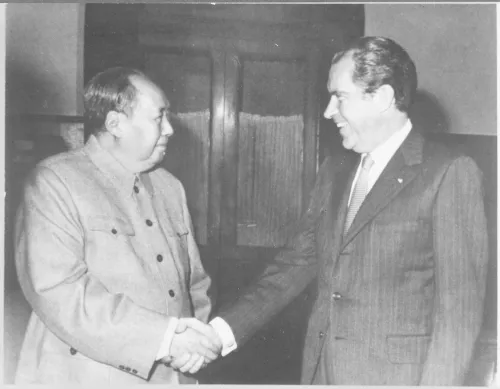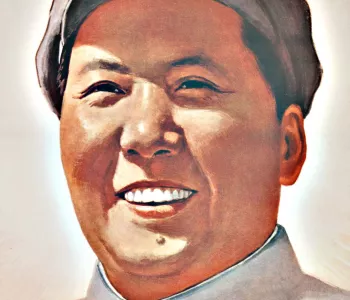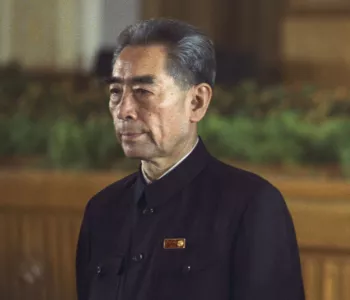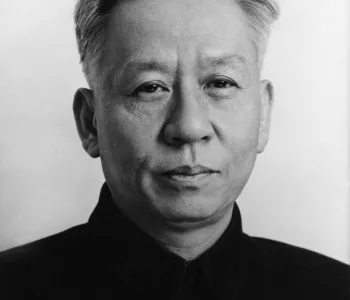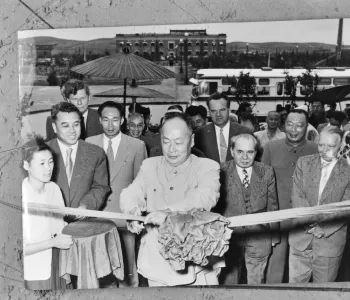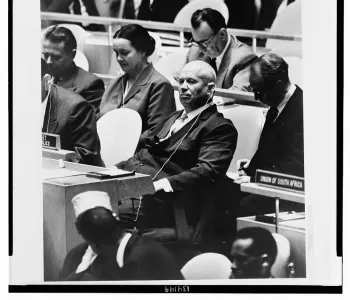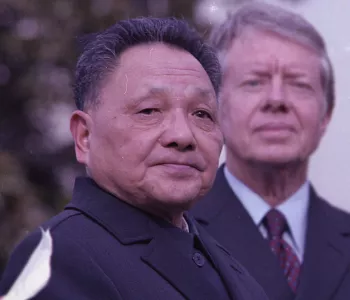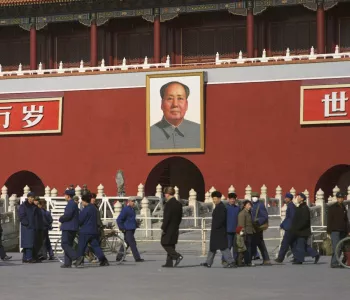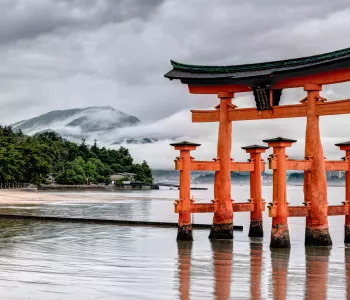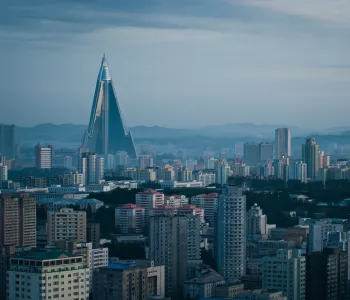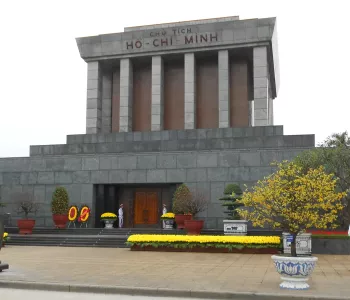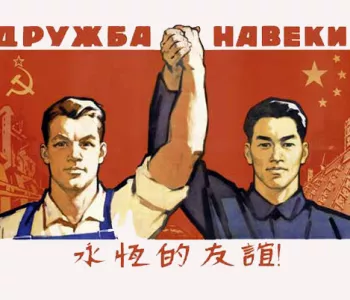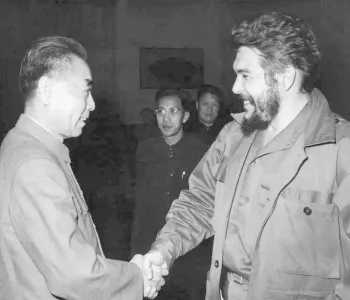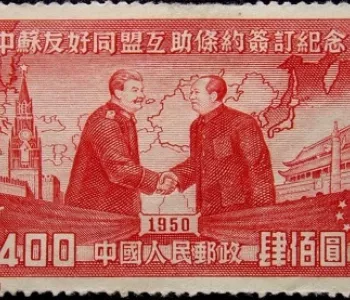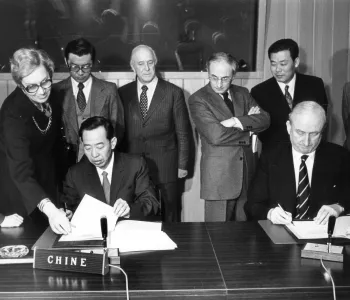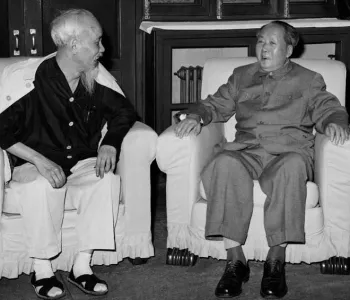Mao Zedong, who ruled China from October 1949 until his death in September 1976, shaped the ideological underpinnings of China's international relations and played a pivotal role in crafting relations with China's allies and enemies. This collection brings together conversations held between Mao and foreign leaders from both within and outside of the communist bloc in order to offer insights into Mao's worldview and major developments in China's domestic history and foreign relations. See also the collection: Conversations with Zhou Enlai. (Image: President Richard Nixon Shaking Hands with Chairman Mao Tse-tung, 21 February 1972, NAID 194759)
